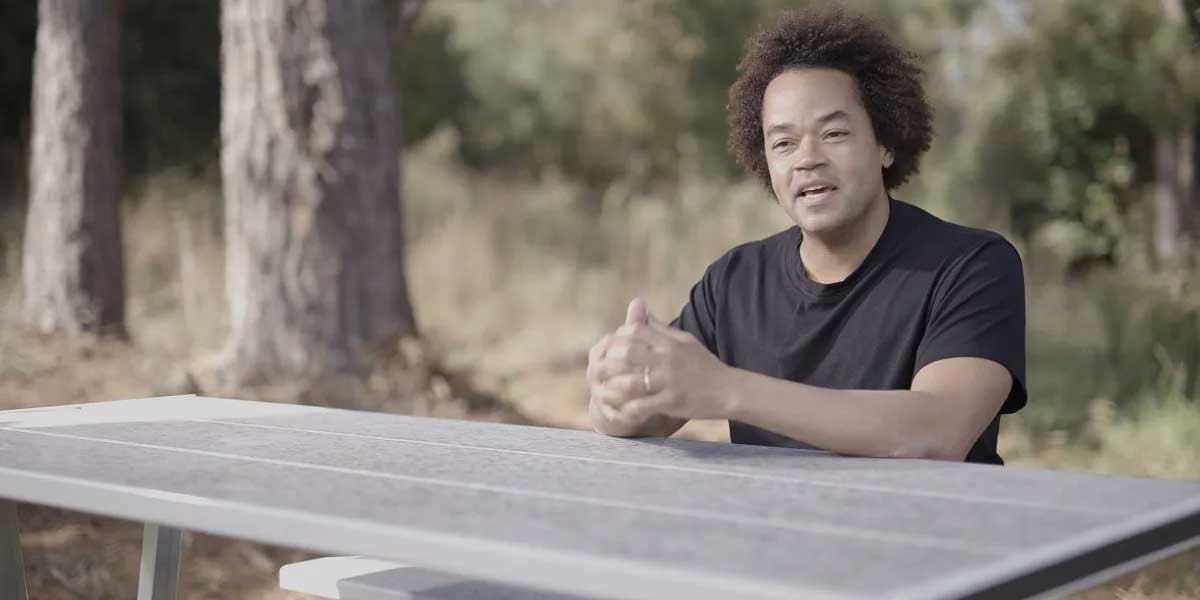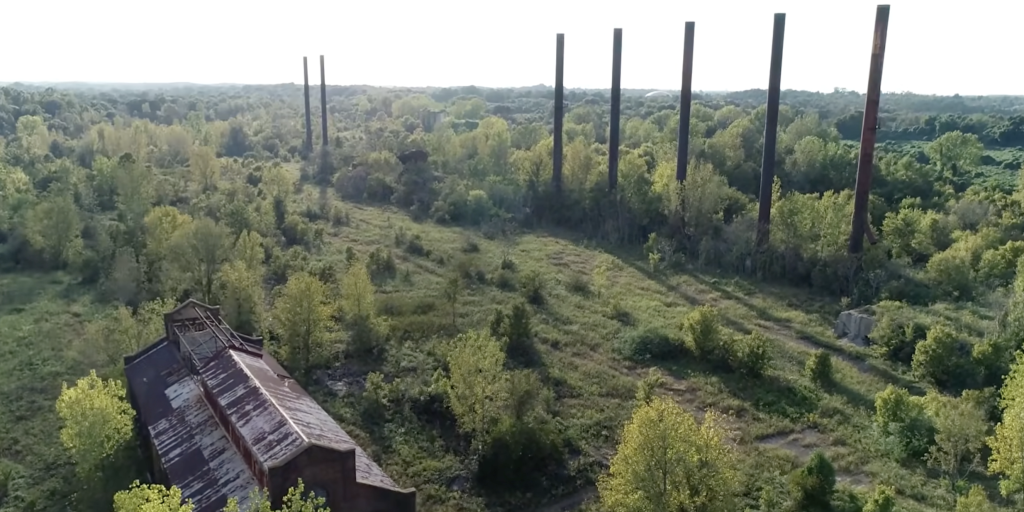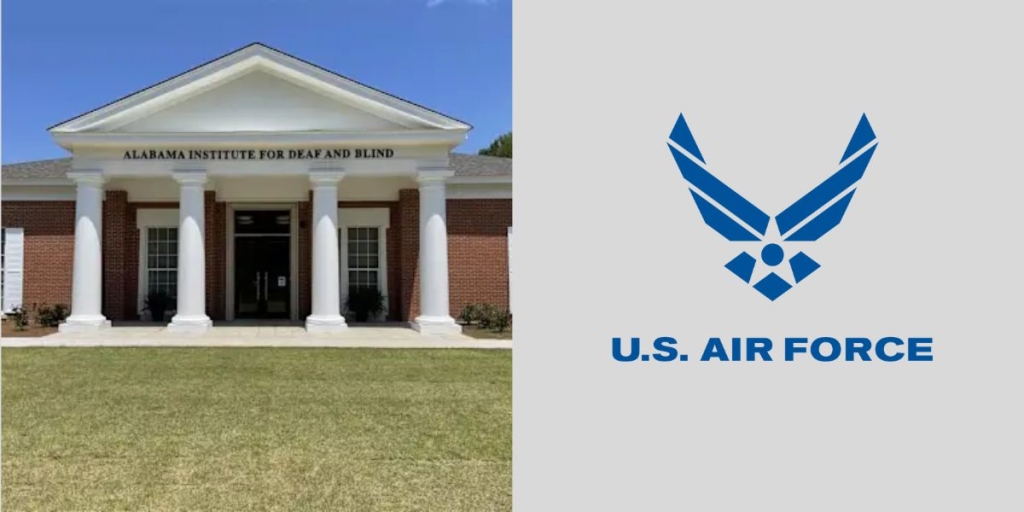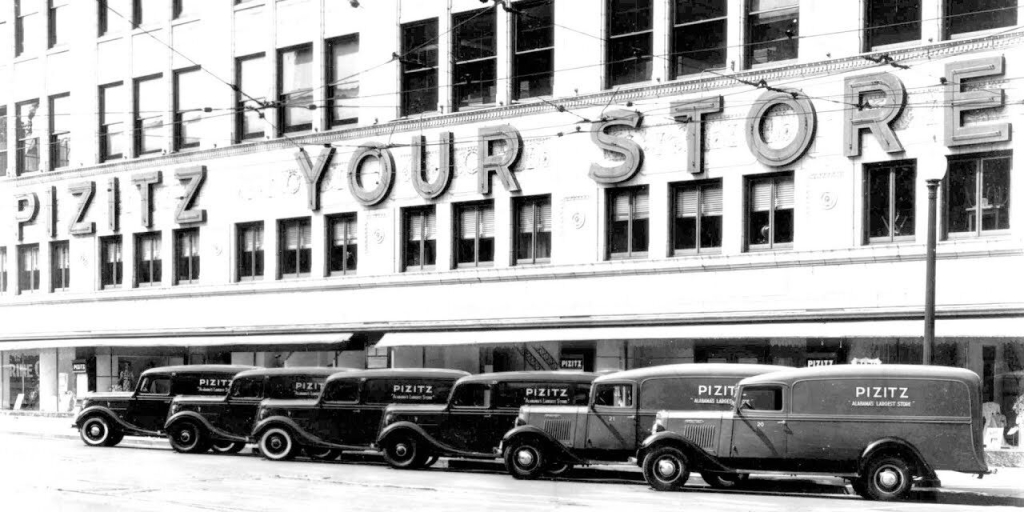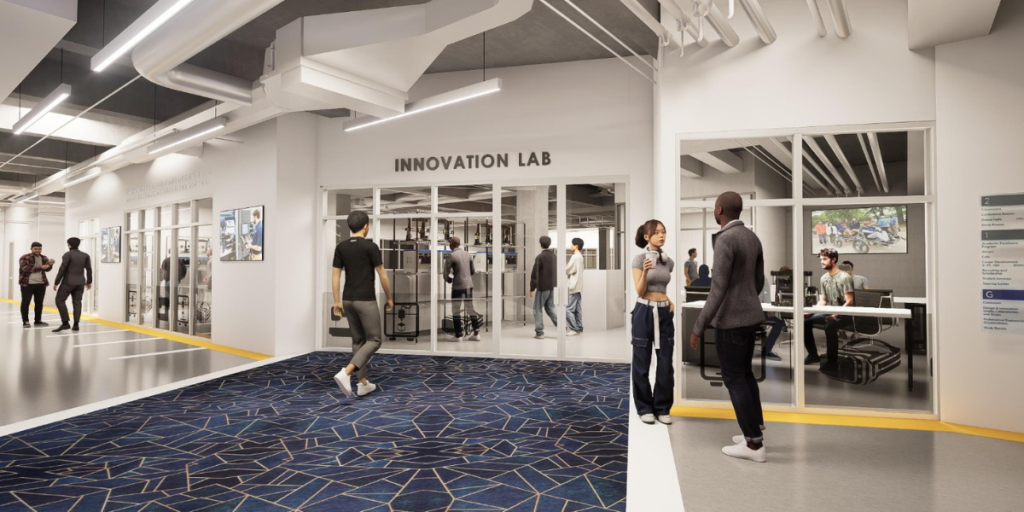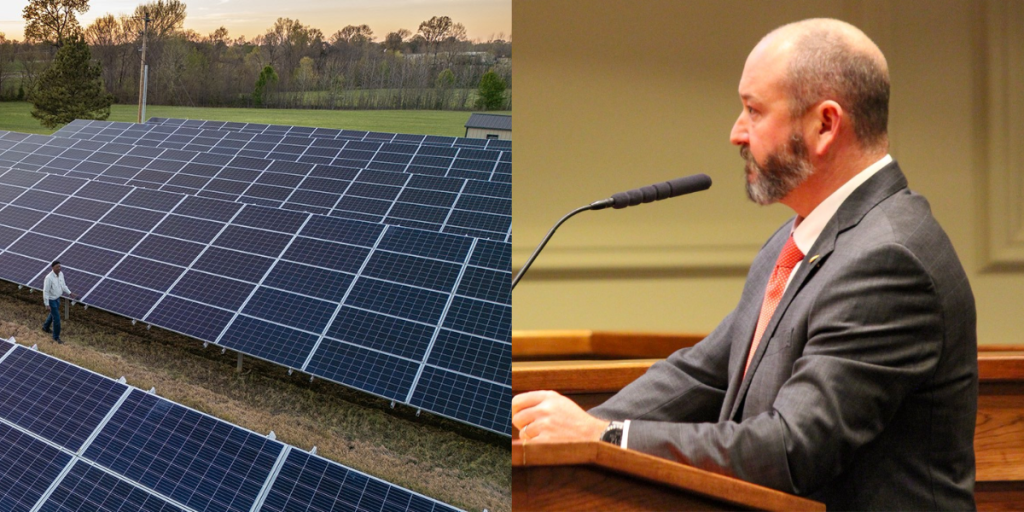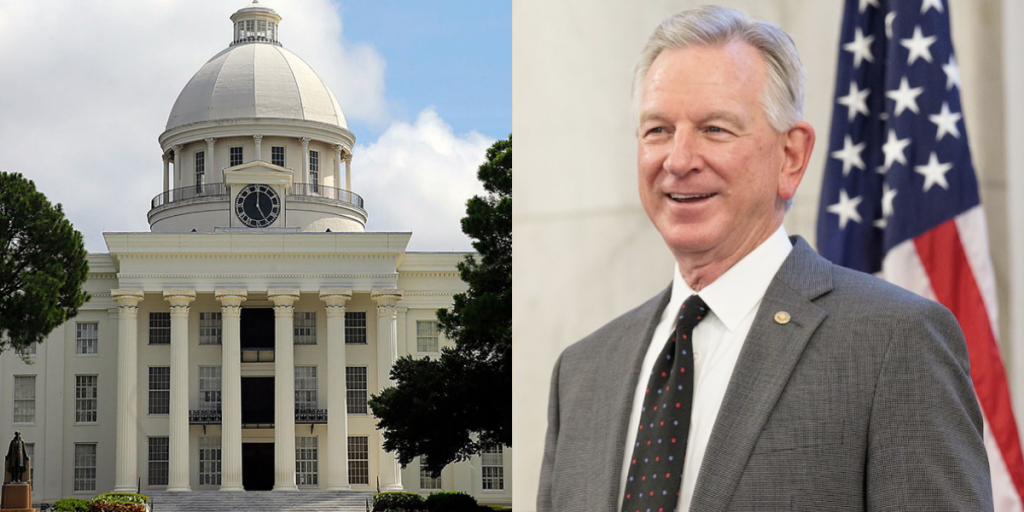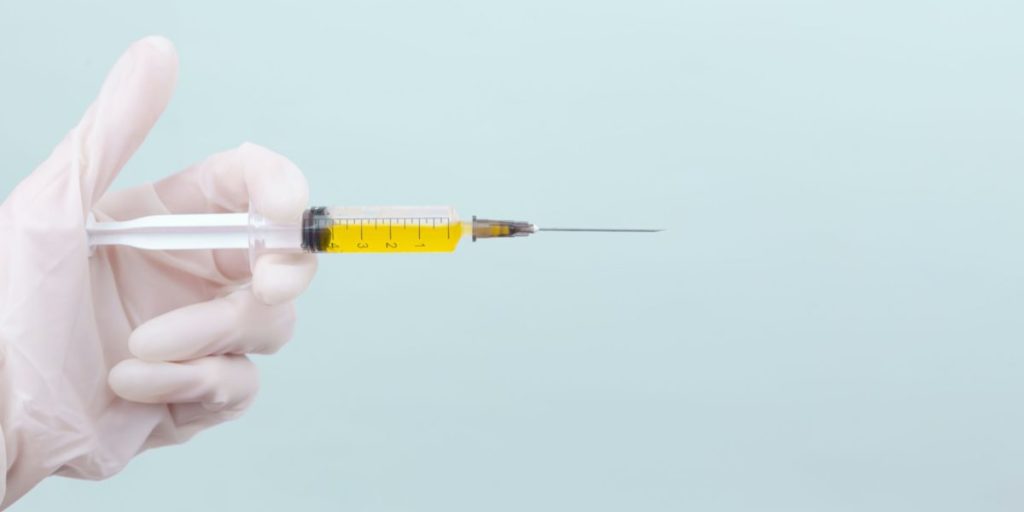Gee’s Bend, Alabama, couldn’t be real.
That’s what fashion designer Patrick Robinson, who knew of the storied Gee’s Bend’s quilters, figured.
“I’ve owned the books of Gee’s Bend forever. I never thought it was a real place,” says Robinson, founder of the New York City-based Paskho clothing company. “I thought it was this mystical place where people made … I mean, if you look at the art, the craft that people make, it blows your mind. So I didn’t believe they existed.”
Yet, the self-proclaimed “weird one from New York with the Afro” sits at a real aluminum picnic table under a real Southern pine on a stunning late fall day, outside a building bustling with real seamstresses – including some quilters – to assemble clothing for Paskho. In the real community of Gee’s Bend, Alabama.
Robinson is right in one regard. There is no town of Gee’s Bend. What many people call Gee’s Bend is actually Boykin, a town of just a few hundred. Boykin was officially named in 1949 – against the wishes of most locals who descended from slaves – after long-serving Alabama Congressman and segregationist Frank W. Boykin.
But calling Boykin a town doesn’t feel quite right. It’s more a scattering of modest homes in an area of Wilcox County at a large bend in the Alabama River, directly across from the county seat of Camden. The land, which the river hems in on three sides, is where Joseph Gee established a cotton plantation in 1816 with 18 enslaved blacks he brought with him from North Carolina, according to the Encyclopedia of Alabama.
In the 200 years since, Gee’s Bend residents have known hard times and isolation. Poverty has been a constant. County Road 29 remains the only road in and out of the area, and residents – “Benders” as they have become known – must take a ferry across the Alabama to visit Camden.
For four decades, from the civil rights era until 2006, Benders couldn’t even ferry across the river because Wilcox County officials ended the service to stymie Black voter registration efforts. That forced residents, many of whom did not own a car, to travel on back roads far out of the way to drive across the river to get to Camden, a trip that took well over an hour.
Amid two centuries of deprivation, the women of Gee’s Bend produced vibrant, stunning works of art. They began quilting in the 19th century to stay warm rather than to reinvent an art form, according to the National Endowment for the Arts, but with their scraps of fabric and clothing they created abstract designs never before expressed on quilts.
Eventually, the quilters gained attention and acclaim from the outside world, spurred by the Freedom Quilting Bee cooperative founded in 1966 and two quilt auctions that year in New York City. In 2002, New York Times art critic Michael Kimmelman, writing about an exhibition at the Whitney Museum, pronounced the quilts’ designs “eye-poppingly gorgeous” and said they were “some of the most miraculous works of modern art America has produced.”
Expanding operations
When Robinson decided to expand Paskho’s operations, he chose the very real but very challenging community of Gee’s Bend in the heart of Alabama’s Black Belt region.
“Destiny has a way of bringing you together with things,” he says.
Through a friend, Robinson met the president and some of the board members of Souls Grown Deep, a nonprofit foundation and community partnership that advocates for Black artists and economic empowerment, racial and social justice and educational advancement in the artists’ communities. Souls Grown Deep has worked with Gee’s Bend quilters to develop direct to consumer sales, and on its website says it has helped them earn nearly $500,000 “in the past six months.”
Souls Grown Deep let Robinson know that Gee’s Bend is indeed real, and that the quilters’ renown hasn’t translated into economic prosperity for the community. The median household income in Boykin in 2019 was $12,292, according to the U.S. Census Bureau.
Souls Grown Deep invested $600,000 in Paskho in March 2021 to establish the Gee’s Bend sewing pod where the Benders now assemble apparel for the company. The Alabama Power Foundation also invested in Paskho this past year to help with job creation in Gee’s Bend.
“They were probably the only people who actually trusted me from the beginning, who actually believed,” Robinson says of Alabama Power’s philanthropic arm.
The foundation’s investment allowed Paskho to buy the raw materials the sewing pod needs to make products for the next year.
When Paskho sells clothing made in Gee’s Bend, “we make a profit and we’re able to reinvest in this community,” Robinson says.
Hallie Bradley, manager of Strategic Initiatives for Alabama Power’s Charitable Giving department, says Paskho’s Gee’s Bend project aligns well with the Alabama Power Foundation’s commitment to address social injustice and its mission to elevate Alabama.
“Providing access to opportunity – good-paying jobs where there hadn’t been any – is part of what it takes to unravel systemic inequality,” Bradley says. “We are especially pleased our investment is helping Paskho provide jobs and reinvest in a community that is a cultural mecca in Alabama, but for so long has needed economic empowerment.”
Gaining trust
Even before Paskho began working to set up the Gee’s Bend sewing pod, Robinson found another monumental challenge beyond raising money.
First, he had to gain the Benders’ trust.
“Most of the communities that we talk to, people have been taken advantage of over and over and over, and they do not believe that you’re just going to come and create jobs, and you’re going to build something in their community that they can go work at. I mean, yeah, they did not believe me. So I said, ‘I’ll just come. Just hear me out.’”
Robinson, a Memphis native, says that he knew to get people in the South out to listen to him, he needed to feed them. So he planned a trip to Gee’s Bend in January 2021 to host a COVID protocol-friendly outdoor lunch.
Robinson explained the concept of the sewing pod and that he was looking to hire people who can sew for good-paying jobs, with the promise of training others.
“And I just got blank stares,” he says, laughing. “Like, ‘Mm-hmm, that’s really nice. I’m sure you’re going to do that. And how many years from now are you going to do that?’”
With only “three or four” people expressing interest that first day, Robinson knew he needed to prove himself to earn the community’s trust. With no buildings for commercial use in Gee’s Bend, Paskho converted two homes into the sewing pod and a warehouse for the fabrics and the assembled clothing.
With each step, from setting up the pod and warehouse, to equipping the pod with sewing machines and inviting people to come try them, to putting out signs letting residents know Paskho was hiring, Robinson gained converts.
“Once we built trust and took the first steps, we’ve just seen this incredible, incredible growth of people who want to be part of it,” he says.
Among them are Clareese Pettway and Mary Margaret Pettway, who make small talk and try to figure out whether they are related. Pettway is one of the most common surnames in Gee’s Bend, the result of Mark H. Pettway buying the Gee plantation from the Gee family in the 1840s and bringing 100 or more slaves with him, all given the last name of Pettway.
“I really love the job and love the people that work here and really like the community,” says Clareese Pettway, a presser for Paskho.
The sewing pod is important to the community because “there are tons of people like us,” she says. “We really need jobs.”
Mary Margaret Pettway sews for Paskho, is a third-generation quilter who teaches others her art and chairs the Souls Grown Deep board of directors.
She takes pride in her commercial sewing job as well as her quilting. “If it’s made in Gee’s Bend, we have a sense of pride. So that makes a world of difference,” she says.
“Have you ever bought pants and thought they were sewn all the way down and you got a space about yea long?” she says, holding her index fingers about 6 inches apart. “We make sure that doesn’t happen with us. …. That’s our pride, to make sure it’s done right.”
While she has made and sold many quilts, Pettway is thankful for her Paskho job. “There’s not a lot of jobs down here. That is the main thing. That’s another reason I’m glad Paskho is open.”
The Pettway women are among the more than 20 people Paskho employs in Gee’s Bend. Robinson says there have been 30 to 40 others “who’ve shown up and really need a job but they don’t have the skills. It’s heartbreaking.”
Robinson wants to figure out the best way to train the unskilled using his current, skilled employees.
“Some way, I’m going to build a training facility here that we start training the generation that wants to be trained, and we’ll have jobs for them if they want those jobs,” he says.
Surfing shorts
Robinson’s path to Paskho and trying to change the world one community at a time began when he was a 14-year-old surfer living in Southern California.
Inspired by Quiksilver, at the time a small company that specialized in clothing for ocean and mountain lovers, Robinson began sewing surfing shorts for his school buddies. They prepaid for the shorts, and he would buy remnants from the fabric store and make “all different patterns.”
“I wish I still had the business because I made one size and that was it. I only knew how to make one size,” he says. “I’d show up with 40 pair of shorts. If you were the first kid who saw me, you’d get to pick from 40 pair of shorts. If you were the last kid, you’d get the last pair of shorts.”
His friends loved them, which got Robinson to thinking he wanted to do that with his life. Seeing a film that featured Jeffrey Banks, a famous Black designer, and the iconic Calvin Klein sealed the deal for Robinson. He moved to New York City to attend Parsons School of Design and became a fashion designer.
Along the way, Robinson worked for iconic brands such as Giorgio Armani, Anne Klein, Perry Ellis, Paco Rabanne and Gap. Robinson founded Paskho – which is the ancient Greek word for “passion” – in 2013 with a Kickstarter campaign, fully launching the company in 2015.
His idea was to create an eco-friendly apparel company making high-end, comfortable clothes. As he puts it, “You could wear one of our pants to go climb a mountain, and then you could walk off that mountain and go straight to dinner in New York City at a fancy restaurant in the same pants.”
But it wasn’t until living through a pandemic and watching George Floyd’s death at the hands of Minneapolis police in May 2020 that Robinson realized his full vision for Paskho.
“As a Black man, that broke open my heart,” Robinson says of Floyd’s death. “I was like, that could just be me, that could just be my son, my daughter. There’s something that changed in me.”
Robinson says he reevaluated who he was and wanted to be, and then did the same for Paskho. From a focus on being environmentally friendly, Paskho shifted to social justice, equality and dignity, he says.
“We changed the whole company to be about this conversation about dignified jobs,” Robinson says.
And none of those jobs would be offshore.
“We decided everything we make has to be made by communities in the United States,” he says. “We feel very strongly that paying people a fair wage, that actually lifting people up and giving them dignified jobs with the skills that they have and then training others for those skills is really, really important as a company.”
Community made
Paskho began what Robinson refers to as a “community-made model” – creating jobs in communities that have suffered – in New York City, which the company calls home. During the height of the pandemic, Paskho set up a sewing pod in the city, hiring people who had worked on Broadway and lost their jobs as costume-makers, as well as those who had lost their jobs when the factories that employed them shut down.
Robinson says Paskho proved “New York City is not that hard,” but the company needed to show the community-made concept can work in a rural community.
Gee’s Bend became the first of what Robinson hopes will be many expansions into struggling communities, including others in Alabama.
“My long-term goal is a big one. My long-term goal is to actually be able to manufacture not just clothes, but multiple products in communities across the United States,” he says.
Robinson says he wants Americans to look “at how they vote every day.”
“And the way you vote every day for the community you want is how you buy things. We’re moving quickly to actually build this idea – that we started in Gee’s Bend – in communities across the U.S. and give people dignified jobs, and then allow you as the public to decide how you want to spend your money.”
If enough people decide to spend their money on Paskho clothes, Gee’s Bend and other communities will benefit, Robinson says. In Gee’s Bend, he hopes that employing enough people and paying them living wages will transform the community over the next decade, triggering other opportunities and filling needs, from stores and restaurants to a gas station and even a hotel.
“We’ve just started a seed,” he says. “But it’s going to grow.”
(Courtesy of Alabama NewsCenter)




